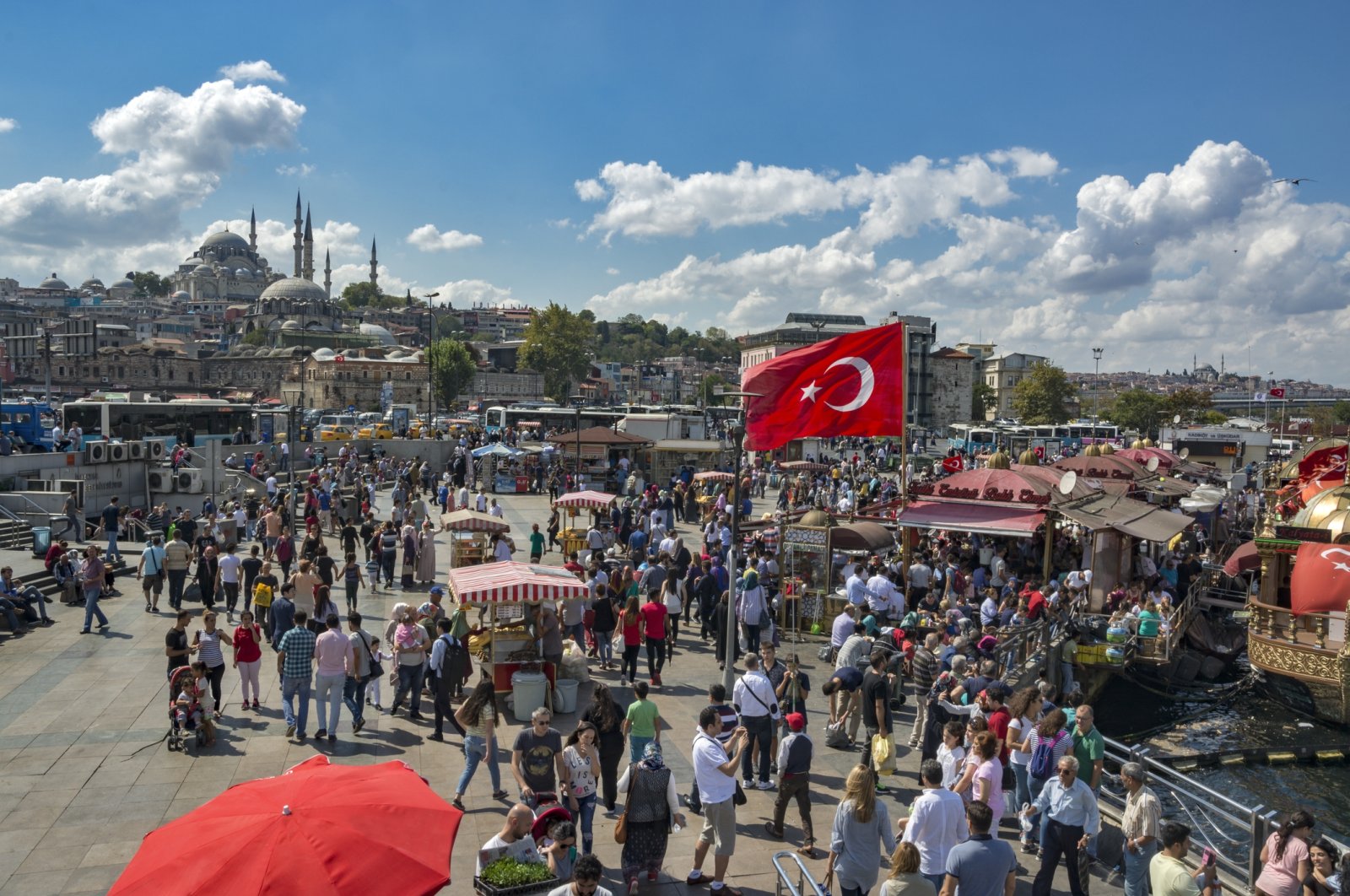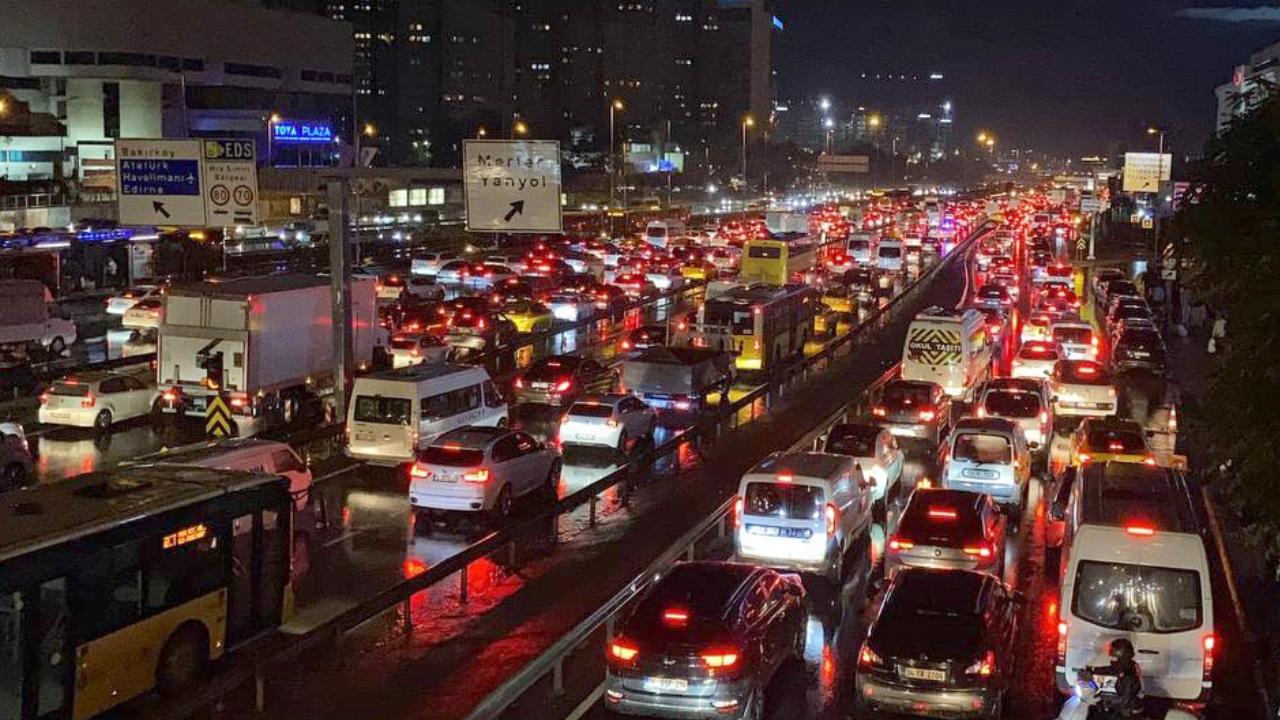
In a bid to ease the growing traffic problem, paid entry will be introduced for vehicles entering certain areas of Eminonu and Kadikoy in Istanbul.
According to a report by Sputnik, as part of the "Istanbul Sustainable Urban Mobility Planning (SUMP)," measures are being implemented to address Istanbul's traffic woes.
One of these measures is the "Congestion Pricing" system, which will require vehicle owners to pay an entry fee for specific areas. Eminonu has been selected as the first implementation area, with Kadikoy to follow as part of the pilot project.
The plan aims to introduce several innovative solutions to reduce traffic congestion:
Ekrem Imamoglu, the Mayor of Istanbul, emphasized that the plan is Türkiye's first sustainable urban mobility plan and includes solutions to encourage environmentally friendly transportation.

Eminonu, covering approximately 6 square kilometers, has been chosen as the first area to implement the system. Kadikoy's Moda district will be the next to join the initiative.
Under the "Low Emission Zone" policy, higher fees will be charged to vehicles that cause more environmental damage, while eco-friendly vehicles will benefit from lower tariffs.
According to the TomTom Traffic Index, Istanbul ranks 65th globally in terms of traffic congestion. Key data reveals:
Besides Istanbul, cities like Gaziantep and Ankara also face notable traffic congestion.
Professor Ayse Uyduranoglu from Istanbul Bilgi University’s Department of Economics highlighted that similar systems have been successfully implemented in cities like London, Stockholm, and Milan.
Uyduranoglu noted that in some cities, congestion decreased by up to 40%, while public transport usage increased by 5-10%.
For the system to function effectively, Uyduranoglu suggested that:
Depending on the results of the pilot project, the paid entry system may be expanded to other areas of Istanbul.
Experts argue that such measures can significantly reduce air pollution and carbon emissions.
Many cities worldwide have successfully implemented paid vehicle entry systems to reduce traffic congestion and protect the environment.
London, Stockholm, Milan, and Singapore are just a few examples of cities where this system has proven effective.
Paid vehicle entry systems are designed to reduce traffic congestion, fight air pollution, and promote eco-friendly transportation.
By regulating vehicle traffic, these systems aim to encourage public transport usage and increase the adoption of environmentally friendly vehicles.
London introduced the "Congestion Charge" in 2003, requiring drivers to pay a daily fee of 15 pounds to enter the busiest areas of the city. As a result, traffic congestion dropped by 20%, while public transport usage saw a significant increase.
Stockholm's paid entry system was introduced in 2007 following a referendum in which the public supported the initiative. The system reduced air pollution by 14% and traffic congestion by 20%.
In 2012, Milan implemented the "Area C" system, charging fossil fuel-powered vehicles 5 euros to enter the city center. Electric and hybrid vehicles are exempt from the fee. This system has significantly reduced carbon emissions.
Singapore pioneered paid vehicle entry systems in 1975 with the "ERP (Electronic Road Pricing)" system. Using dynamic pricing, vehicles entering the city center during peak hours are charged, resulting in a substantial reduction in both traffic and air pollution.
New York City will introduce a $9 congestion charge from January 5, 2025 for driving in Manhattan south of 60th Street. Aimed at cutting traffic and funding $15 billion for mass transit, the toll is expected to reduce vehicle entries by 80,000 daily. Trucks will pay up to $21.60, with discounts for night travel.
As Istanbul embarks on this new journey with its paid entry system, the eyes of the world will be on the city to see if this initiative can successfully ease the traffic woes while promoting sustainability.